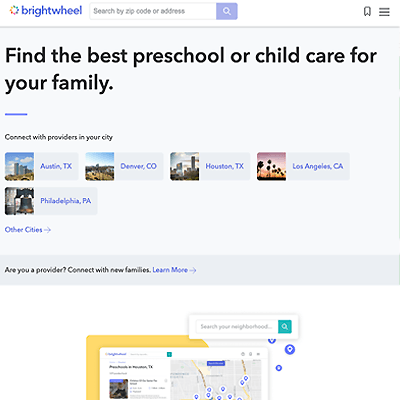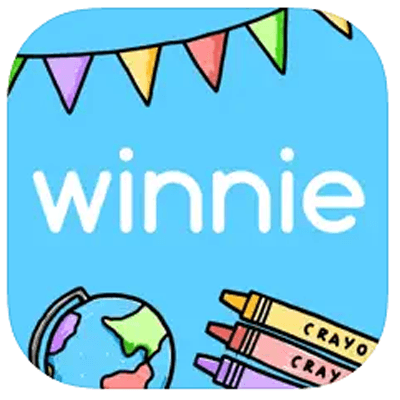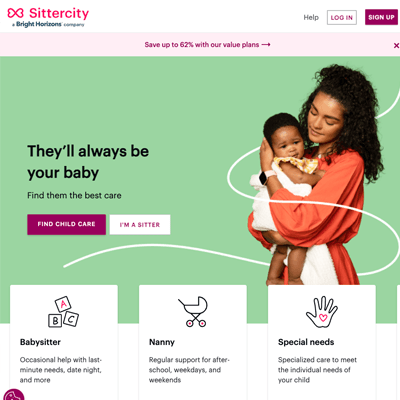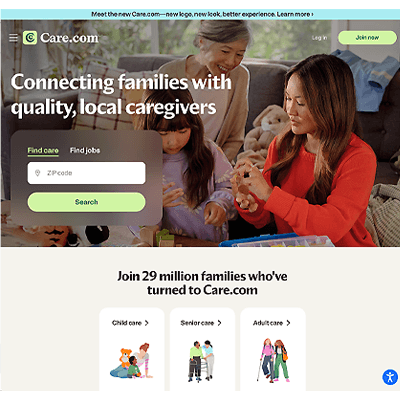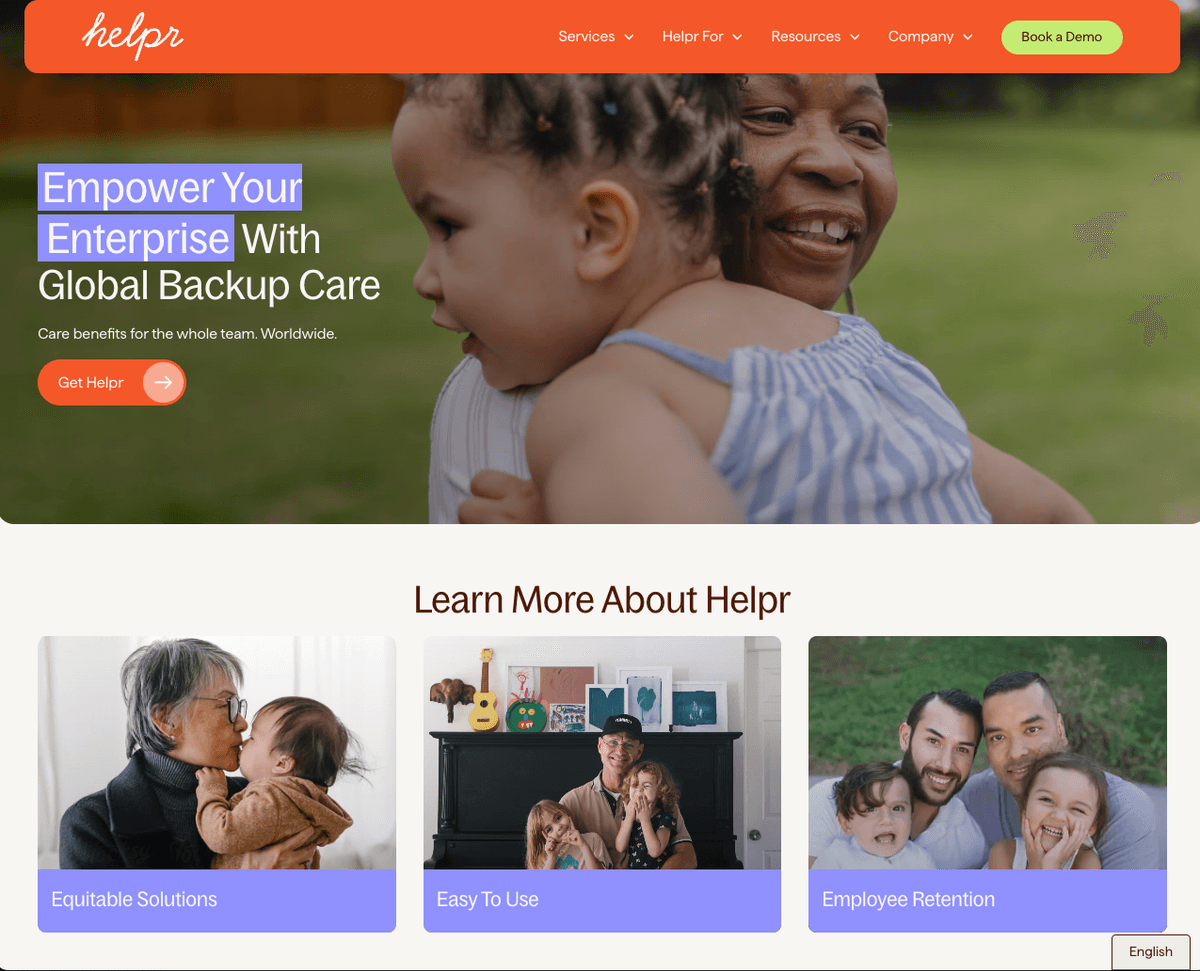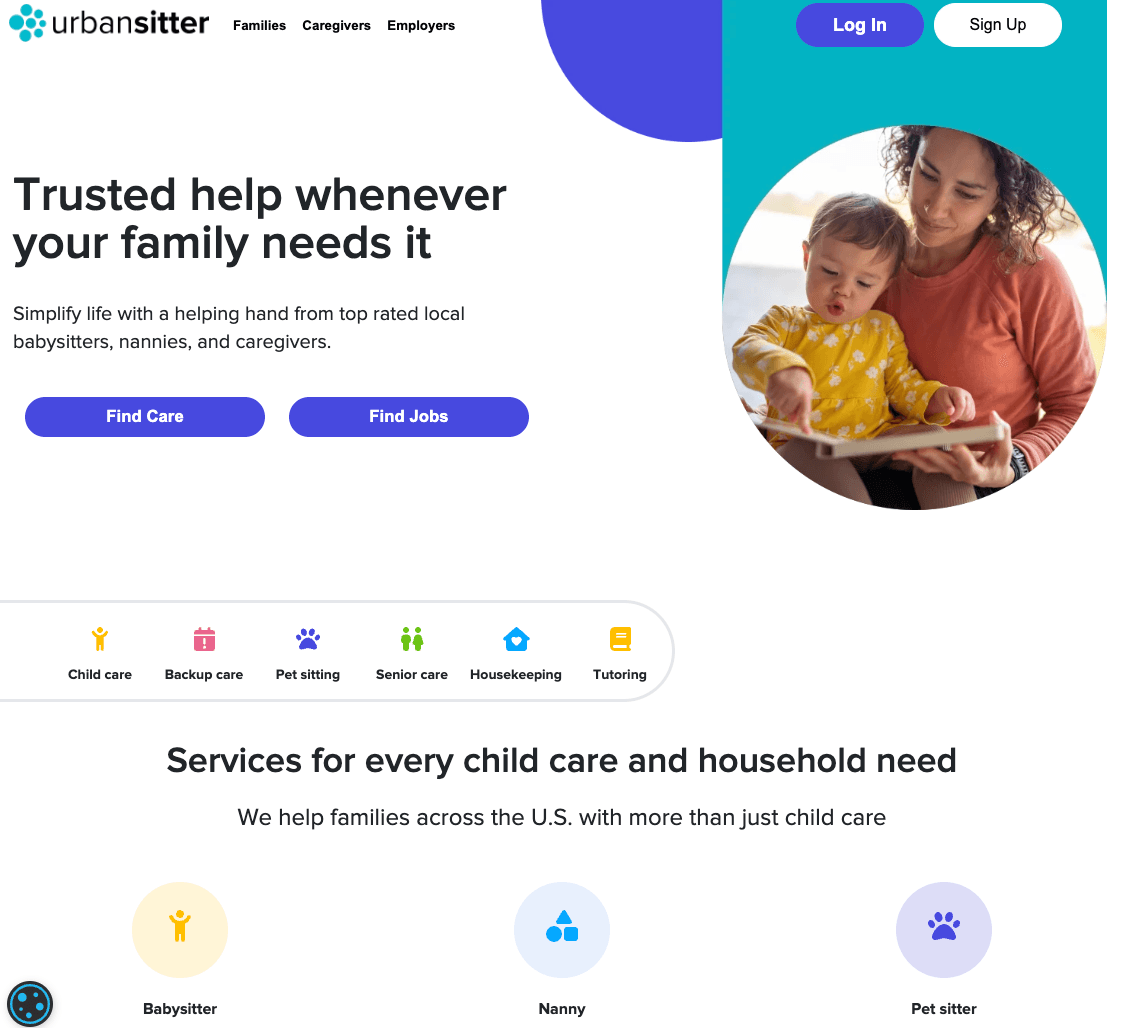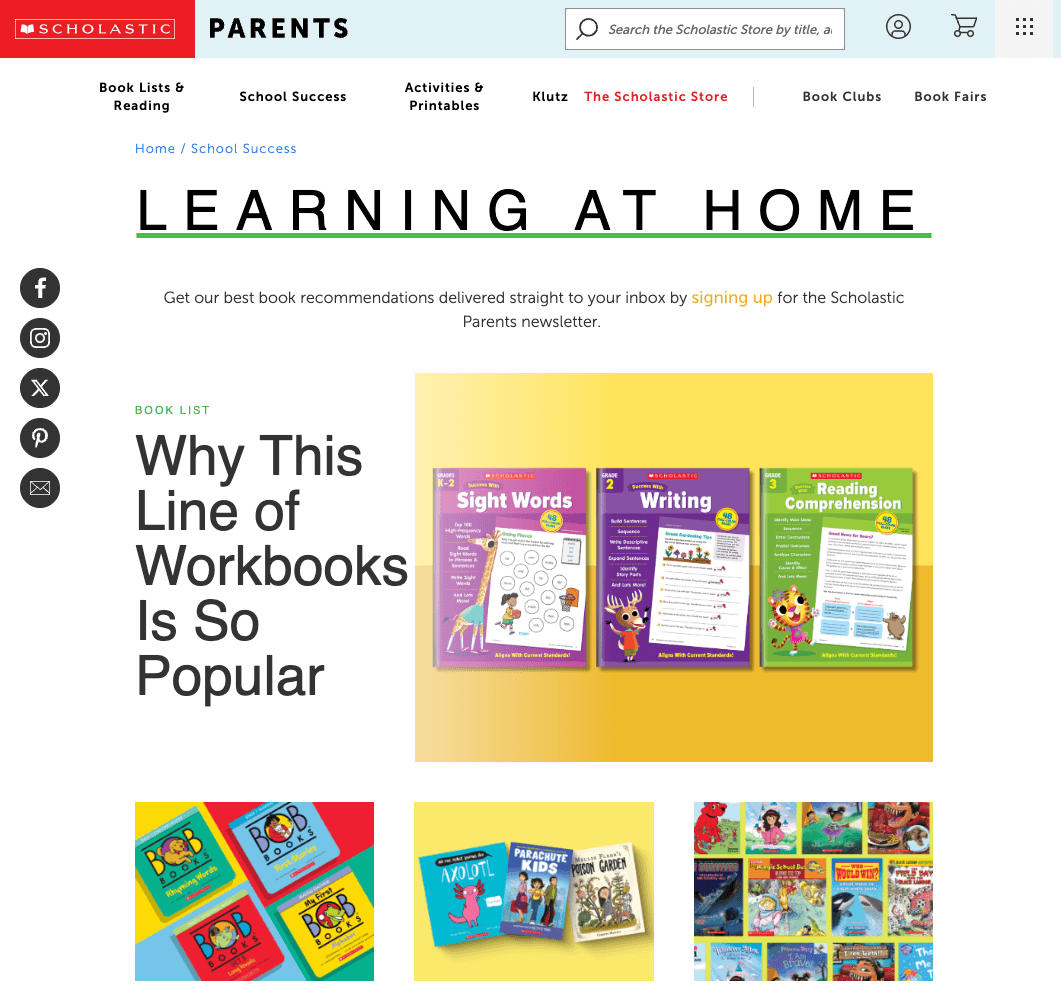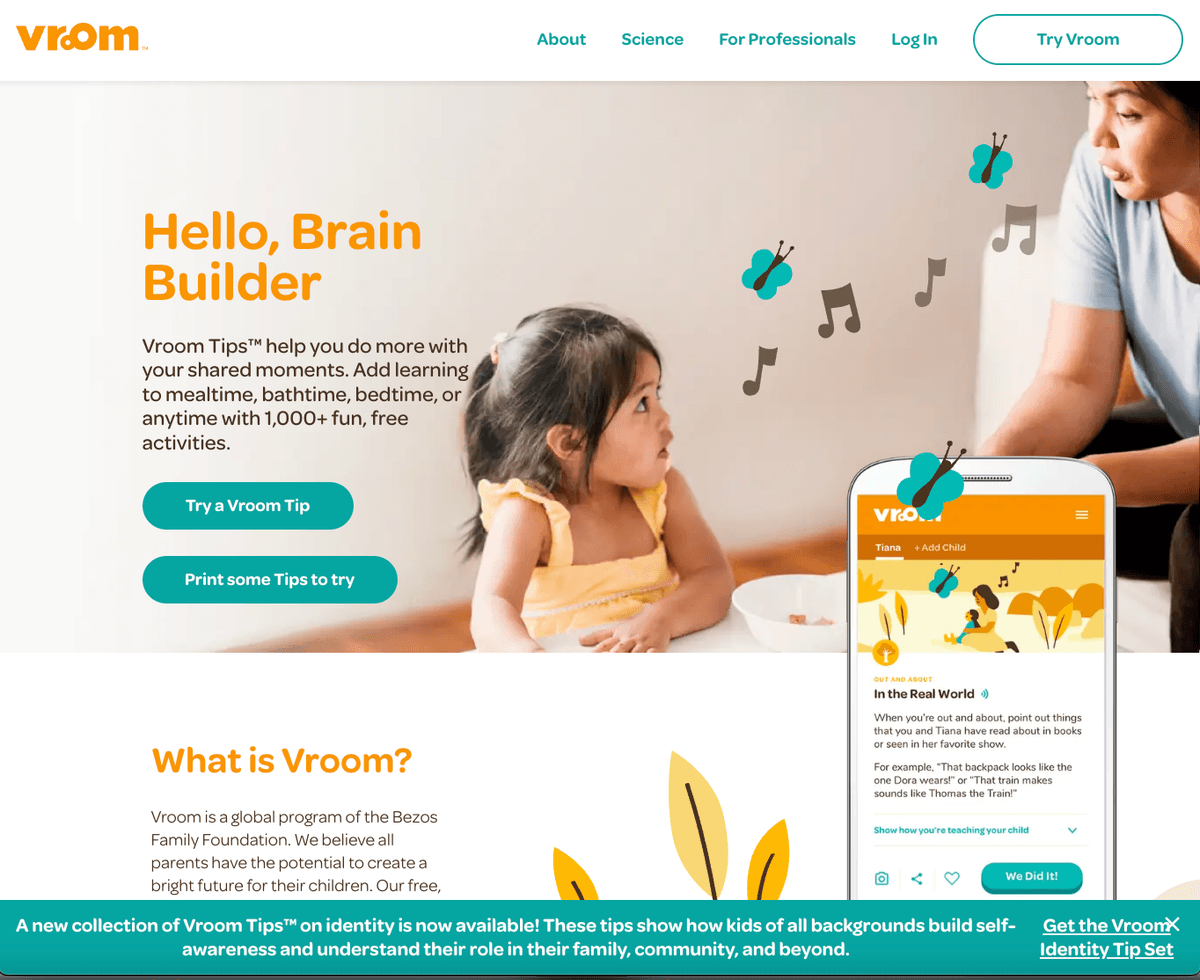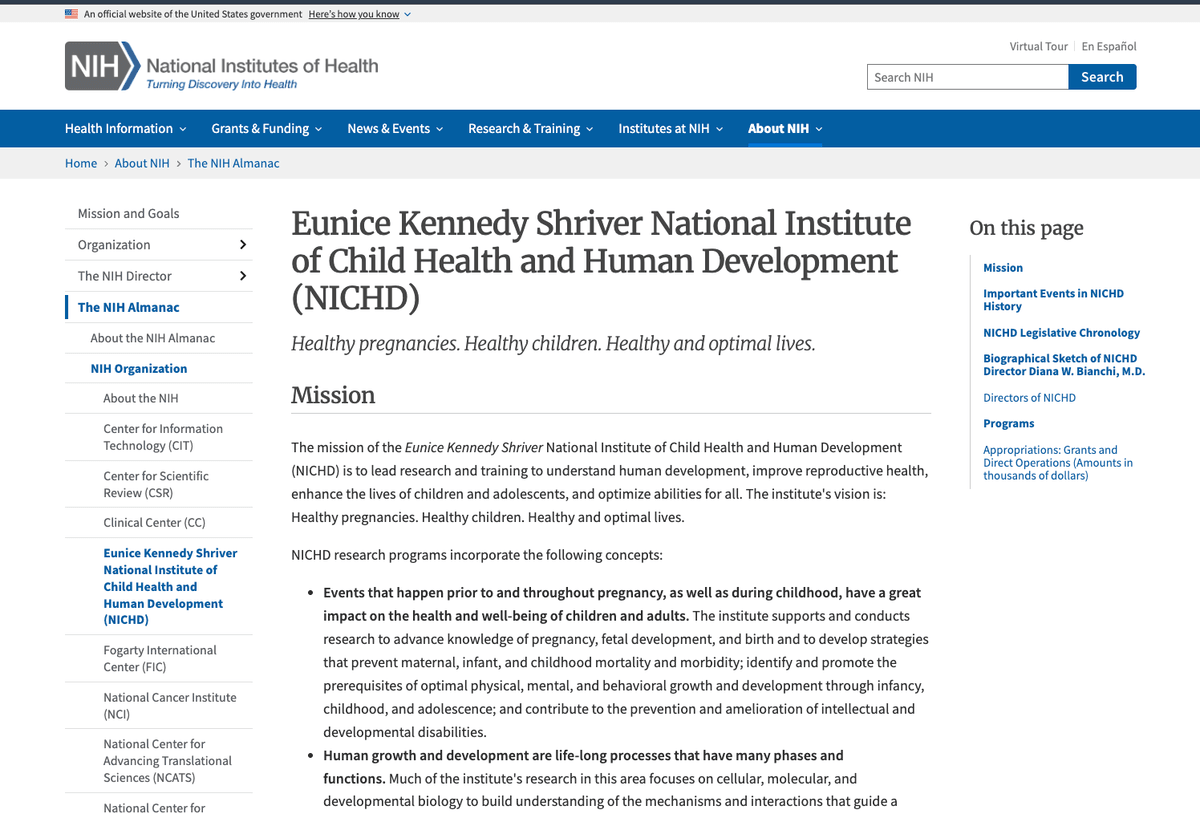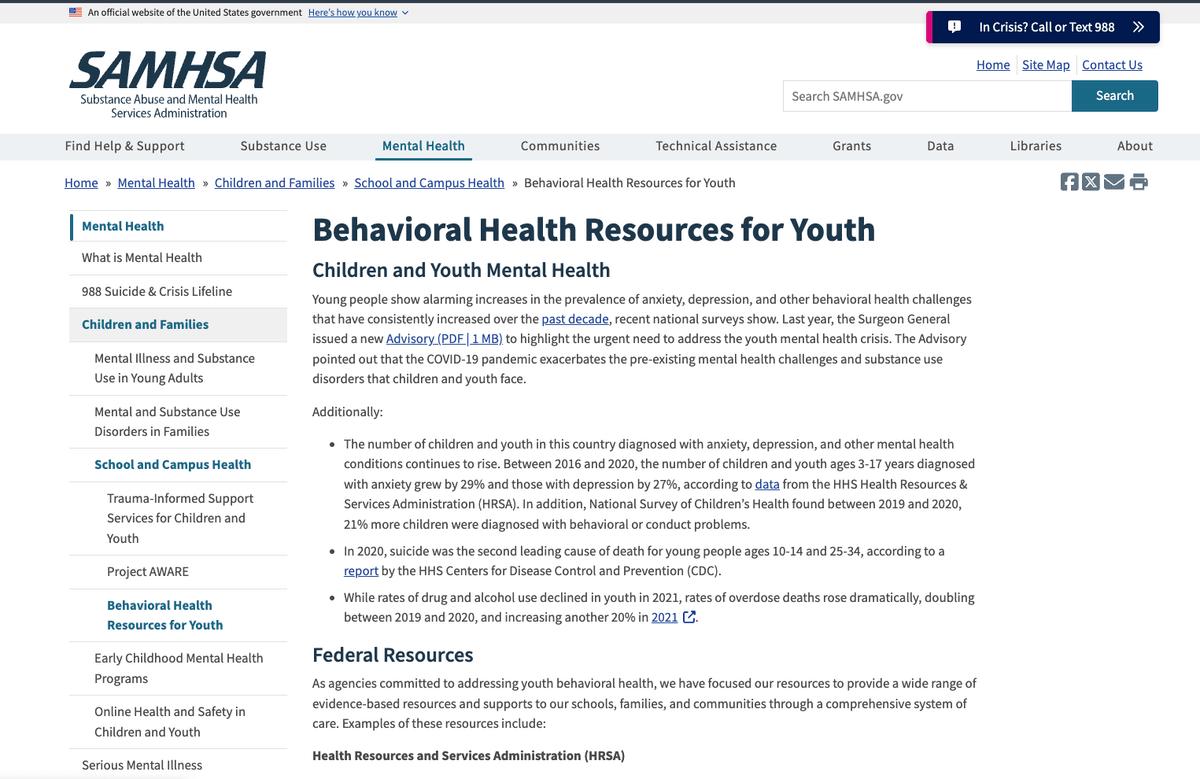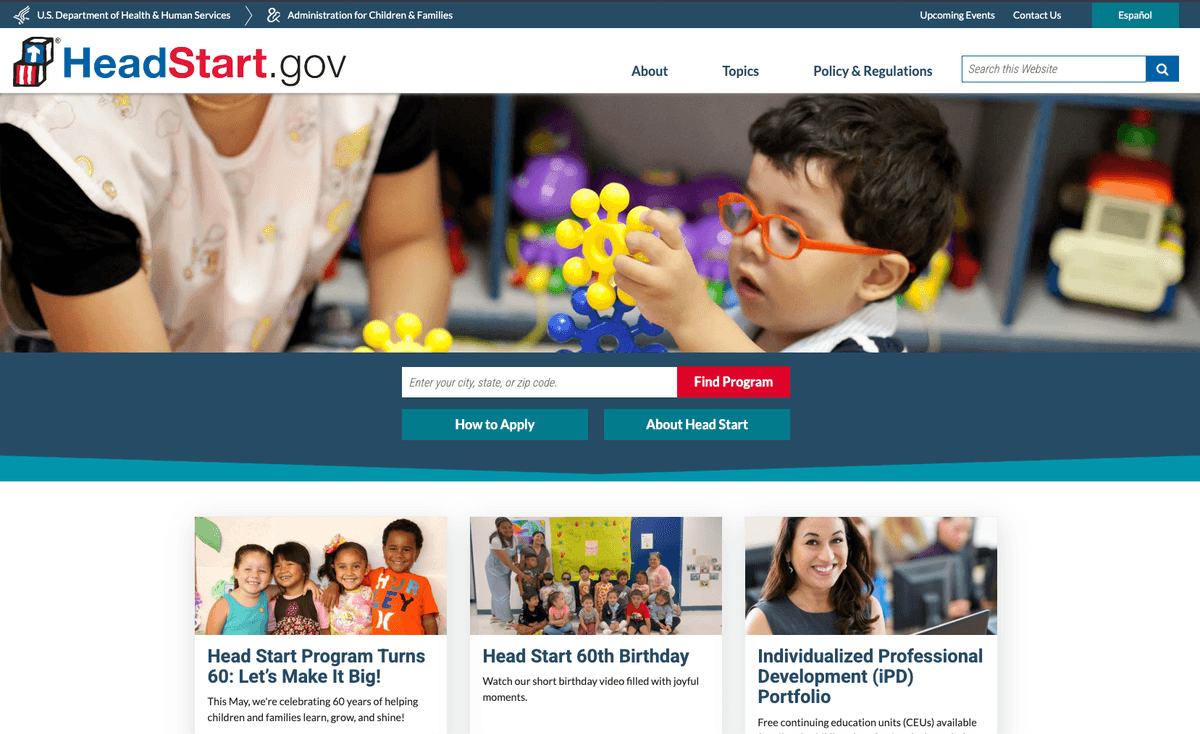



SuccessfulBaby.com
- Baby Names & Success
- …
- Baby Names & Success



SuccessfulBaby.com
- Baby Names & Success
- …
- Baby Names & Success

Parenting Help
Resources to save time, relieve stress and give you more time to focus on whats most important
Childcare & Preschool | Health & Development | Educational & Learning | US Government | State Programs | Emergecy and Safety Preparedness
Childcare & Preschool Finders
BrightWheel.com
Brightwheel's search is built to help parents and guardians to cut through the noise, it’s a streamlined directory of preschools and daycare centers vetted by real parents and educators. In Los Angeles alone, without filters, it shows more than 2,900 options. You can sort by location, curriculum style, and even whether you’ll need to pack snacks. Think Yelp meets Montessori with less stress and more peace of mind. Try it here
Winnie App
Winnie makes it easy for parents to find and connect with the best local daycares, preschools, after-school care and more. With one tap you can search over 250K licensed child care providers, Think Google Maps meets Yelp, but specifically designed for the chaos of finding quality childcare. The app includes pricing info, licensing status, and real parent reviews - essentially everything you need to make informed decisions without playing phone tag. (iOS App) (Android App)
Sittercity.com
Sittercity is one of the OG babysitter sites and still one of the best 4 Best Babysitting Apps and Websites, Tested and Reviewed. Think of it as the LinkedIn for childcare. It's professional, comprehensive, and surprisingly fast at connecting you with candidates. Premium membership runs $94.99 for 3 month, but the streamlined process and helpful resources (like built-in interview question templates) make the investment feel purposeful rather than painful. See it here
Care.com
Care.com is the Swiss Army knife of caregiving platform. It includes childcare, eldercare, pet sitting, you name it. With robust filtering options that let you hunt for everything from CPR-certified sitters to non-smokers who'll tidy up after snack time. At $38.95/month for premium access it's pricier than some options, but the extensive background check capabilities and massive candidate pool make it worth considering for parents who want options, options, options. Learn more
Helpr
Helpr is an excellent option for families needing last-minute or emergency babysitting, when offered as a benefit through one's employer review. This is the VIP lane of childcare apps. If your employer offers it as a benefit, you're golden. All sitters are background-checked, and typically the employer pays for the caregiving up to a certain amount. It's like having a childcare concierge service, but you need the right employer to unlock this level of convenience. Learn more
UrbanSitter.com
Meet the LinkedIn-meets-Nextdoor of childcare apps. It taps into your social network to show sitters your friends and neighbors already know and trust. You can browse availability in real time, read parent reviews, and even book someone on short notice. The interface is slick, the sitters are often college-educated, and the transparency is a breath of fresh air. At around $35/month for premium access, it’s not the cheapest, but if social proof matters more than sheer volume, it’s a compelling pick. Check it out
Health & Development Resources
Healthychildren.org
Think of Healthychildren.org as the Mayo Clinic meets your mom group - except everything is actually reviewed by pediatricians and not that one mom who swears honey cured her kid’s RSV. Powered by the American Academy of Pediatricians (AAP), it’s a clean, intuitive site full of practical answers on everything from feeding schedules to behavioral red flags. No paywall. No fluff. Just deeply vetted guidance for parents who want signal over noise. See it
KidsHealth from Nemours
If WebMD is a panic button, KidsHealth is the calm voice that talks you off the ledge. It’s broken down by age group and written like the authors actually like children - rare in medical writing. Bonus: it includes sections for kids and teens, so they can learn how their bodies work without you needing to Google “What is puberty?” at midnight and coming across less than ideal content. Check it out
CHOC Health Library
The content isn’t just medically accurate, it’s parent-friendly, which means fewer acronyms and more “what should I do about this rash?” vibes. Their mental health and behavior sections are a standout, especially if you're raising a tiny human with big emotions (read: every toddler ever). It’s like having a pediatrician in your pocket, minus the copay and is a bookmarkable free resource. See it
Lovevery Play Guides
Yes, they sell toys. Beautiful, Instagram-bait worthy toys. But buried beneath the curated wood and organic cotton is something parents actually need: sharp, stage-based guides that explain what your kid’s brain is doing and how to support it. No purchase required. It’s like a growth roadmap for parents who want to foster development without Googling “Is this normal?” 14 times a day. Bonus: you’ll actually understand why your toddler is obsessed with putting everything in a box. See thier blog and Guides
Pathways.org
Think of Pathways.org as the GPS for your child’s development journey.Whether you're navigating tummy time or tackling toddler tantrums, this platform offers clear, expert-backed guidance.With resources vetted by pediatric professionals, it's like having a trusted co-pilot to help you understand and support your child's growth every step of the way. Learn more
Big Little Feelings
If toddlers came with a user manual, this would be it. Big Little Feelings takes those daily emotional meltdowns - yours and theirs - and reframes them as teachable, survivable moments. Run by a licensed therapist and a parent coach, their posts, courses, and bite-sized tools turn chaos into connection. It’s not crunchy or clinical. It’s tactical, relatable, and designed for parents who want less struggles and more peace without having to become a child psychologist overnight. Learn more
Educational and Learning Resources
PBS Kids
PBS KIDS is what happens when nostalgia meets legit pedagogy. It’s screen time that doesn’t feel like a compromise. Think: Sesame Street, Daniel Tiger, Curious George which all deliver math, reading, and social-emotional growth wrapped in characters your kid (and you) already love. But it's not just passive entertainment; the games and interactive tools are built with educator input and align with key learning benchmarks. And unlike most apps in the toddler-targeting space, PBS KIDS isn’t trying to upsell you. No pop-ups, no ads, no hidden subscriptions, only a clean, safe space to help your kid build curiosity, empathy, and foundational skills. It’s public media done right. Reay for it?
Khan Academy Kids
Khan Academy Kids is the rare unicorn: it’s actually free, actually good, and actually backed by early learning science. Built by educators and designed for ages 2 to 8, this app delivers story-based lessons on reading, math, social-emotional learning, and problem-solving. It’s gamified just enough to keep kids hooked but not so over-stimulating that they turn into screen zombies. The interface is intuitive, the activities are developmentally sound, and the content is constantly evolving. If you’re looking for a guilt-free digital tool to support early learning- especially for preschoolers and kindergartners - this is a no-brainer. See it
Starfall
Starfall has been the quiet MVP of early childhood literacy for two decades. It's so good, it still holds up. This platform specializes in helping kids learn to read using a phonics-based approach that’s both playful and methodical. The free content (yes, there’s plenty even without a paid membership) includes interactive books, songs, and early math games, all designed to keep young minds engaged without burning out their attention span. What makes Starfall unique is that it feels like a digital version of a great kindergarten classroom. It's structured but warm, repetitive and not boring. It’s perfect for the parent who wants their child to read before they hit grade school. See it
Scholastic Learn at Home
Originally built for pandemic shutdowns, this resource stuck around for a reason. It provides ready-to-go daily “learning journeys” with books, videos, and mini projects curated by Scholastic’s editorial and education teams. It’s sorted by age, tied to standards, and doesn’t require hours of setup. If you want structure without subscribing to a boxed curriculum, or if you just need a rainy-day plan that doesn’t end in a meltdown, this is the link to click: See it
Unite for Literacy
If access to books is a barrier, Unite for Literacy smashes it. This site offers hundreds of digital picture books in multiple languages with read-aloud narration. The stories are simple, engaging, and culturally inclusive which is perfect for early readers, multilingual households, or parents looking to add more diversity to story time. It’s low-friction, low-gloss, and high-impact: a quiet powerhouse for language development and representation. See it
Vroom.org
Vroom.org (not com) takes all the neuroscience of early childhood development and delivers it in a sentence or two... right when you need it. Think of it as a coach in your pocket, turning routine moments (brushing teeth, making lunch, changing diapers) into micro-opportunities for cognitive growth. The tips are personalized, fast to read, and developmentally aligned with your child’s age. It's a gift for busy parents who want to build smarter, more connected kids, even in the middle of chaos. No login, no pressure, just research-backed reminders that your everyday moments matter. See it
Federal and State Governmental Resources
Childcare.gov
This is your GPS for navigating America’s chaotic childcare landscape. It doesn’t just help you find care. It helps you understand what good care looks like. If you're trying to avoid the “warm body with snacks” version of daycare and instead want cognitive growth, structured play, and social-emotional scaffolding? Start here. It's the intel parents wish they had before spending $1,500/month on finger painting. Go Now
CDC – Learn the Signs
Think of this as the user manual your kid didn’t come with. This tool breaks down what developmental milestones actually look like - without drowning you in medical jargon. It’s for parents who want to spot brilliance early, catch red flags faster, and give their kid the kind of head start that doesn’t involve overpriced flashcards.
Eunice Kennedy Shriver National Institute of Child Health and Human Development
If you want the receipts behind what actually builds a healthy, high-performing brain - this is the source. From sleep and nutrition to cognitive growth and prenatal impact, this site doesn’t play hype games. It’s what pediatricians read when they’re not in the exam room. Use it if you want data-driven parenting without the influencer filter.. See it
SAMHSA – Family & Youth Mental Health Resources
Most parents focus on physical milestones. This site reminds you that emotional bandwidth is just as critical—maybe more. SAMHSA gives you real, tactical tools to raise emotionally intelligent, mentally well humans who won’t need four years of therapy to learn how to say “I’m frustrated.” Bonus: it’s also a great gut-check for your own mental health as a parent. See it
Head Start / Early Head Start (ECLKC)
People think Head Start is just for lower-income families. But it’s actually one of the most research-backed, whole-child frameworks ever built. If you’re serious about your kid’s cognitive, emotional, and physical development—and want a model that integrates all three—this is it. It’s the Ivy League of early learning programs, just with less fleece and more nutrition. See it
U.S. Department of Education – Early Learning
This is the policy-wonk portal for parents who want to understand the infrastructure behind high-quality early learning. It breaks down literacy benchmarks, equity goals, and even STEM for toddlers—yes, really. Ideal for parents thinking long game: not just “Is my kid on track?” but “What track are they on, and how do I build the bullet train? See it
State Child Development
Resources to save time, relieve stress and give you more time to focus on baby
These State resources are designed to empower parents with knowledge and tools to support effective child development
- Alabama
Help Me Grow Alabama
Provides developmental milestone checklists and connects families with local resources to support children's growth. - Alaska
Alaska Early Learning Guidelines
Offers comprehensive developmental guidelines for children from birth to age five, assisting parents in tracking milestones. - Arizona
First Things First – Ages and Stages
Provides detailed information on developmental milestones and tips for supporting children's growth at various stages. - Arkansas
Arkansas Child Development and Early Learning Standards
Outlines developmental expectations for children from birth through 60 months, aiding parents in understanding growth patterns. - California
First 5 California
Offers resources and tools to help parents support their children's development, including milestone checklists and activity ideas. - Colorado
Colorado Early Learning and Development Guidelines
Provides a framework for understanding children's development from birth to age eight, with practical tips for parents. - Connecticut
Connecticut Early Learning & Development Standards (CT ELDS)
Details what young children should know and be able to do, supporting families in fostering development. - Delaware
Delaware Department of Education – Developmental Screening Resources
Provides access to developmental screening tools and resources to monitor children's growth. - Florida
Florida Early Learning
Offers developmental milestone information and resources to support children's early learning experiences. - Georgia
Georgia Department of Early Care and Learning (DECAL)
Provides resources and guidelines to assist parents in tracking and supporting their children's development. - Hawaii
Hawai‘i Early Learning and Development Standards (HELDS)
Provides comprehensive guidelines on what children should know and be able to do at different stages from birth to age five. - Idaho
IdahoSTARS – Basics of Child Development
Offers developmental milestones and resources to support children's growth from birth to age five. - Illinois
Illinois Early Learning Project
Provides tip sheets and resources on child development, including milestones and learning activities. - Indiana
Brighter Futures Indiana
Features developmental milestones, screening services, and resources to support early learning. - Iowa
Iowa Family Support Network
Offers information on child development, developmental milestones, and family support services. - Kansas
Kansas Early Learning Standards
Provides guidelines to support children's development and school readiness from birth through age five. - Kentucky
Kentucky Early Childhood Standards
Offers resources and standards to guide children's development and learning from birth to age five. - Louisiana
Louisiana Department of Health – Developmental Screening Resources
Provides tools and information to track and support children's developmental milestones. - Maine
Maine Department of Education – Early Childhood
Offers resources and guidelines to support early childhood development and learning. - Maryland
Maryland Early Childhood Development
Provides information on developmental milestones and resources for parents and caregivers. - Massachusetts
Massachusetts Department of Early Education and Care
Offers resources on child development, including developmental milestones and early learning guidelines. - Michigan
Great Start to Quality
Provides information on child development, developmental milestones, and resources to support early learning. - Minnesota
Help Me Grow Minnesota
Offers comprehensive information on developmental milestones across cognitive, communication, social-emotional, and motor domains. - Mississippi
Mississippi Thrive!
Provides resources and checklists to help parents track developmental milestones and access early intervention services. - Missouri
Early Connections Missouri
Offers guidance on developmental milestones and connects families with local early childhood resources.
- Montana
Montana Milestones Part C Early Intervention Program
Provides early intervention services for infants and toddlers with developmental delays or disabilities.
- Nebraska
Help Me Grow Nebraska
Offers tools and resources to track developmental milestones and connect with local support services.
- Nevada
Nevada Act Early
Provides information on developmental milestones and early intervention services for young children.
- New Hampshire
Watch Me Grow NH
New Hampshire’s developmental screening, referral, and information system for families of children ages birth to six years.
- New Jersey
Child Care NJ – Developmental Milestones
Provides information on developmental milestones and resources for early intervention services.
- New Mexico
NewMexicoKids.org – Child Development Resources
Offers tools for tracking developmental milestones, including apps like Milestone Tracker and Vroom, plus access to home visiting programs.
- New York
New York State Early Learning Guidelines
Provides detailed developmental milestones for children from birth to age 8, along with strategies to support child development.
- North Carolina
NC Infant-Toddler Program Developmental Milestones
Offers milestone charts to help parents track their child's development during the first three years.
- North Dakota
North Dakota Health and Human Services – Child Development Resources
Provides resources including developmental milestone guides and early intervention services.
- Ohio
Ohio Early Intervention
A statewide system offering coordinated services to parents of infants and toddlers with developmental delays.
- Oklahoma
Oklahoma Parents Center – Developmental Milestones
Provides milestone checklists and resources for parents to monitor their child's development. - Oregon
Help Me Grow Oregon – Developmental Milestones
Offers tools and resources to track your child's development and connect with local services. - Pennsylvania
Promise for Children – Understanding Developmental Milestones
Provides checklists and resources to help parents understand and support their child's development. - Rhode Island
Rhode Island Department of Health – Early Intervention
Offers services and resources for families to support the development of children with delays or disabilities. - South Carolina
South Carolina First Steps – Early Intervention
Provides resources and services to support early childhood development and school readiness. - South Dakota
South Dakota Birth to Three Program
Offers early intervention services for infants and toddlers with developmental delays. - Tennessee
Tennessee Early Intervention System (TEIS)
Provides services to infants and toddlers with disabilities or developmental delays.
- Texas
Texas Health and Human Services – Early Childhood Intervention (ECI)
Offers services for families with children under three who have developmental delays.
- Utah
Utah Department of Health – Baby Watch EarlyIntervention
Provides early intervention services for infants and toddlers with developmental delays.
- Vermont
Vermont Department for Children and Families – Children's Integrated Services
Offers early intervention and family support services.
- Virginia
Infant & Toddler Connection of Virginia
Provides early intervention services for infants and toddlers with developmental delays.
- Washington
Washington State Department of Children, Youth, and Families – Early Support for Infants and Toddlers (ESIT)
Offers early intervention services for children under three with developmental delays.
- West Virginia
West Virginia Birth to Three
Provides early intervention services for children under three with developmental delays.
- Wisconsin
Wisconsin Birth to 3 Program
Offers early intervention services for infants and toddlers with developmental delays.
- Wyoming
Wyoming Department of Health – Developmental Disabilities Division
Provides early intervention services for children with developmental delays.
Safety and Emergency Preparedness
Resources to save time, relieve stress and give you more time to focus on baby
- Alabama
Educational and Learning Resources
Ready.gov/kids
Think of this as the FEMA-endorsed playbook for families.Ready Kids offers age-appropriate tools to help children understand emergencies without inducing fear. From interactive games, learning how to build and follow a plan and the ability to create customizable family emergency plans, it's a comprehensive resource that turns preparedness into a family affair. See it
American Red Cross
The Red Cross isn't just about blood drives; it's a cornerstone in emergency preparedness.Their "Be Red Cross Ready" program provides step-by-step guides, checklists, and even mobile apps to ensure families are equipped to handle disasters.It's like having a disaster response team in your pocket and shows you how to prepare for and work through natural emergencies. See it
Healthychildren.org
Backed by the American Academy of Pediatrics, this site offers medically sound advice on preparing for various disasters.It covers everything from creating emergency kits to addressing children's emotional needs during crises. See it
Sesame Workshop
For over 50 years, Sesame Street has led the way in explaining complex topics to young minds. Their emergency preparedness resources use familiar characters to teach children about safety in a comforting and accessible manner.It's education wrapped in empathy. See it
FEMA Youth Preparedness
FEMA's Youth Preparedness section offers a wealth of resources aimed at educating children about emergencies.From activity books to interactive tools, it's designed to empower the younger generation with knowledge and confidence in crisis situations. See it
Save the Children
Save the Children's Prep Rally program transforms emergency preparedness into an engaging experience for kids.Through games and activities, children learn essential safety skills, making the concept of emergencies less daunting and more manageable.. See it
